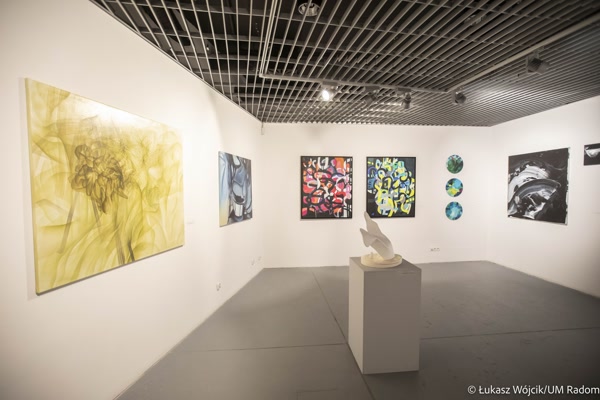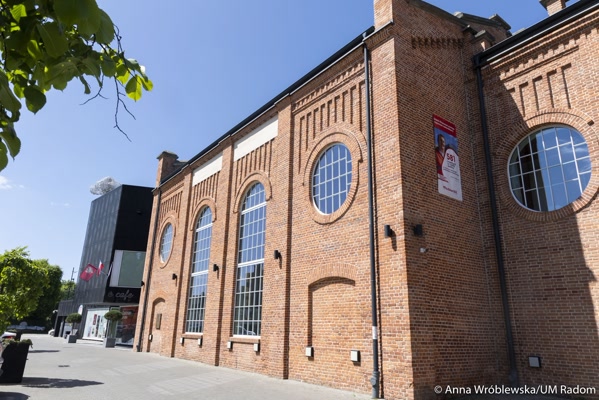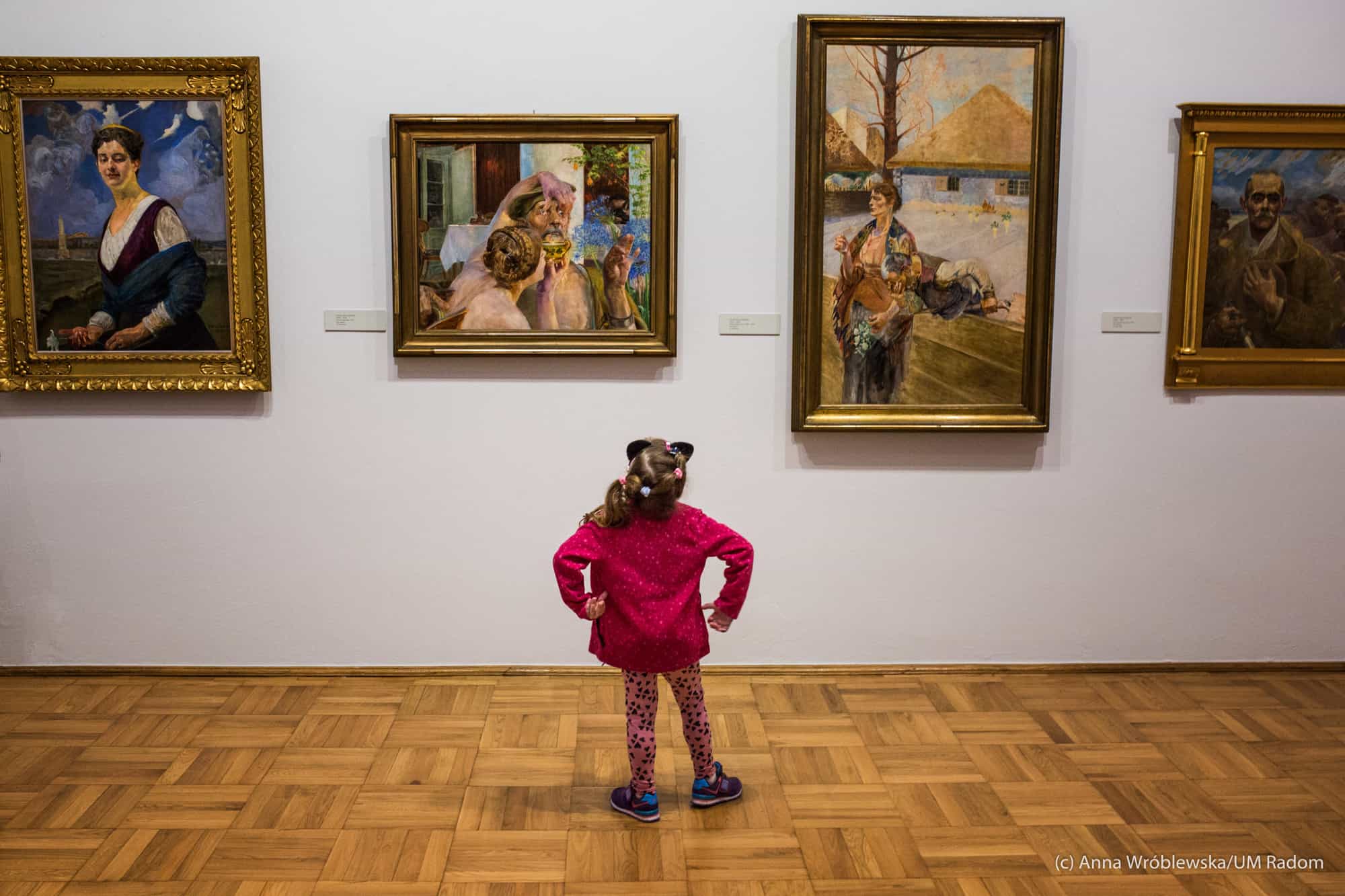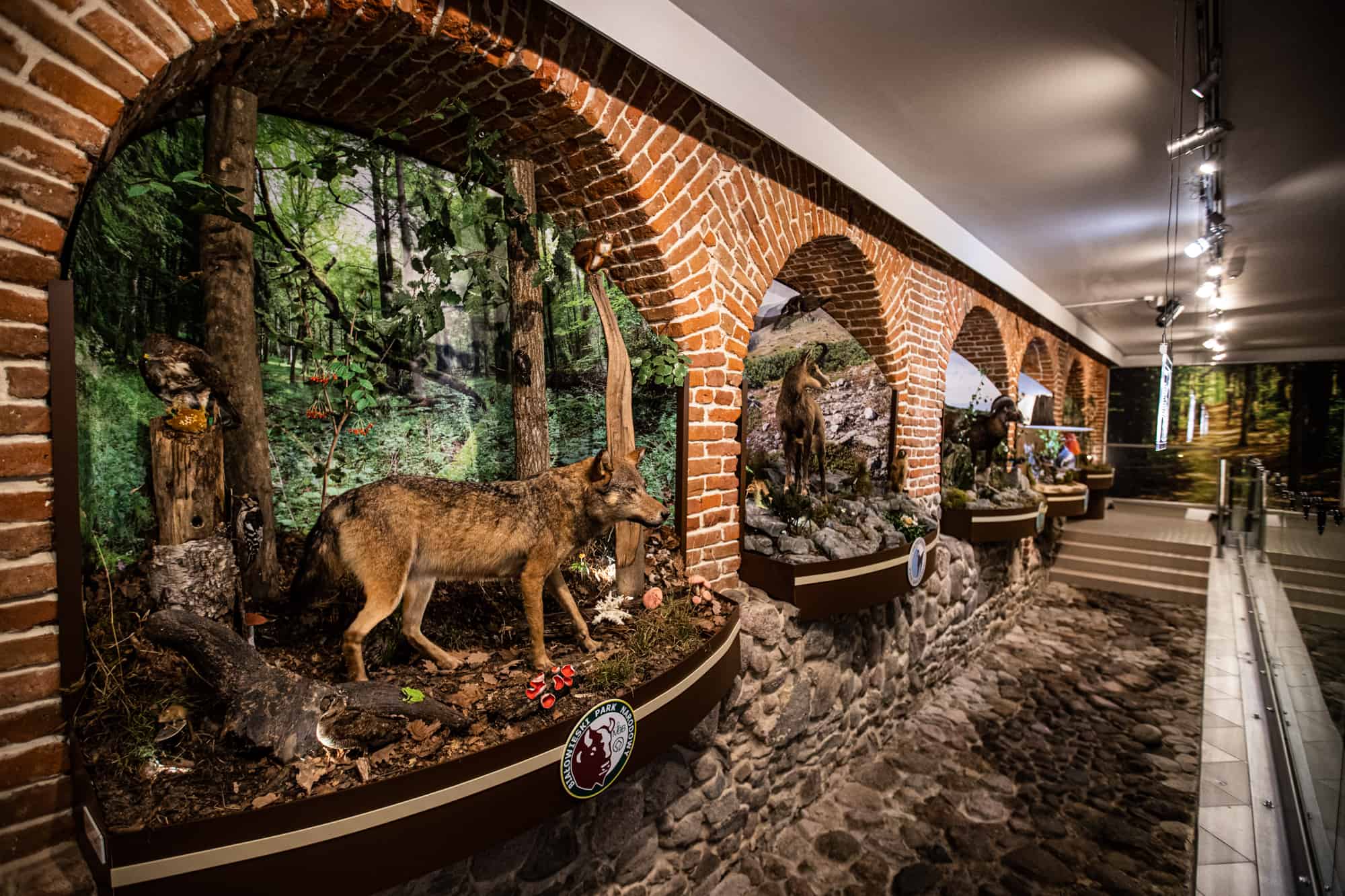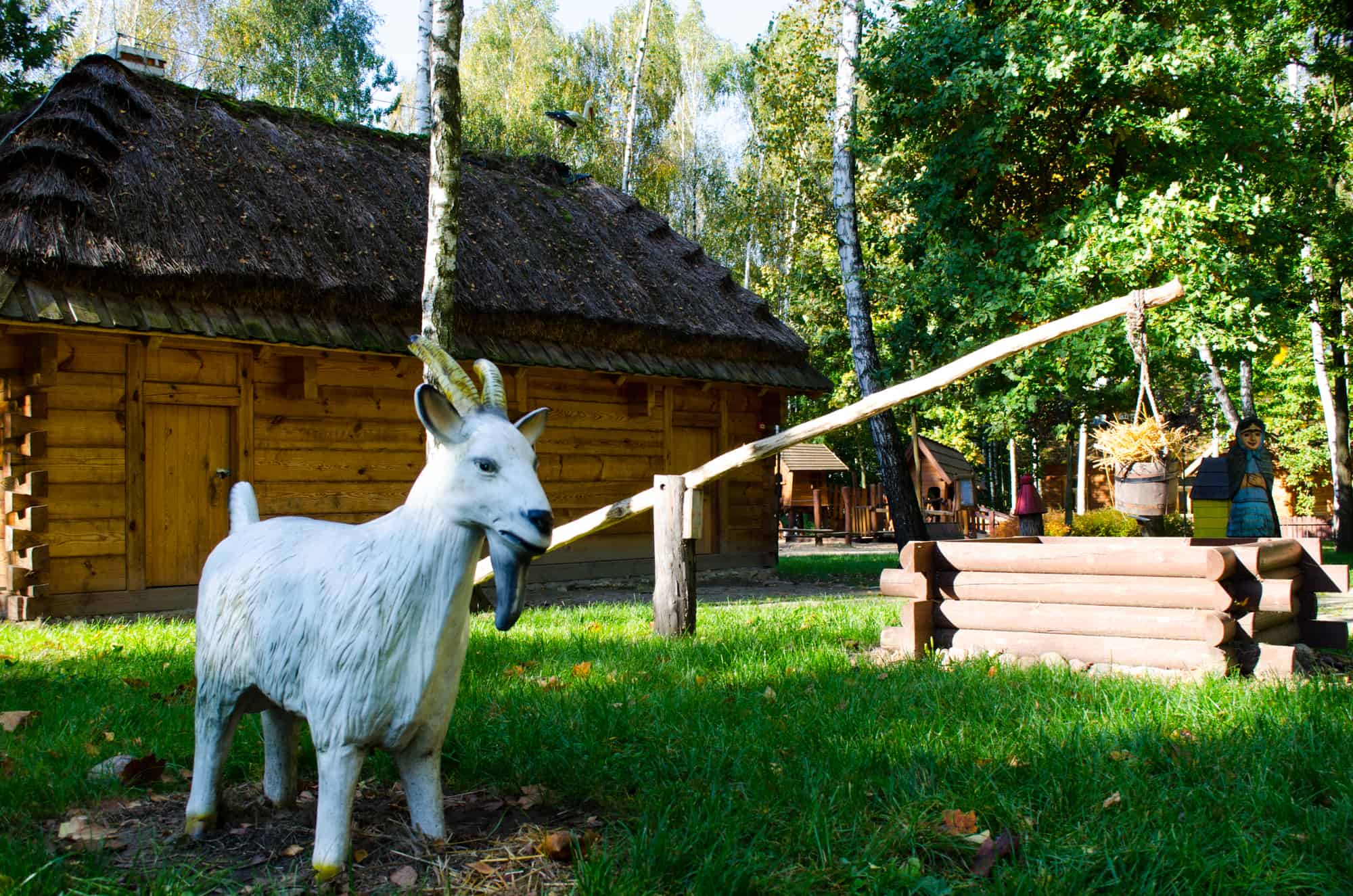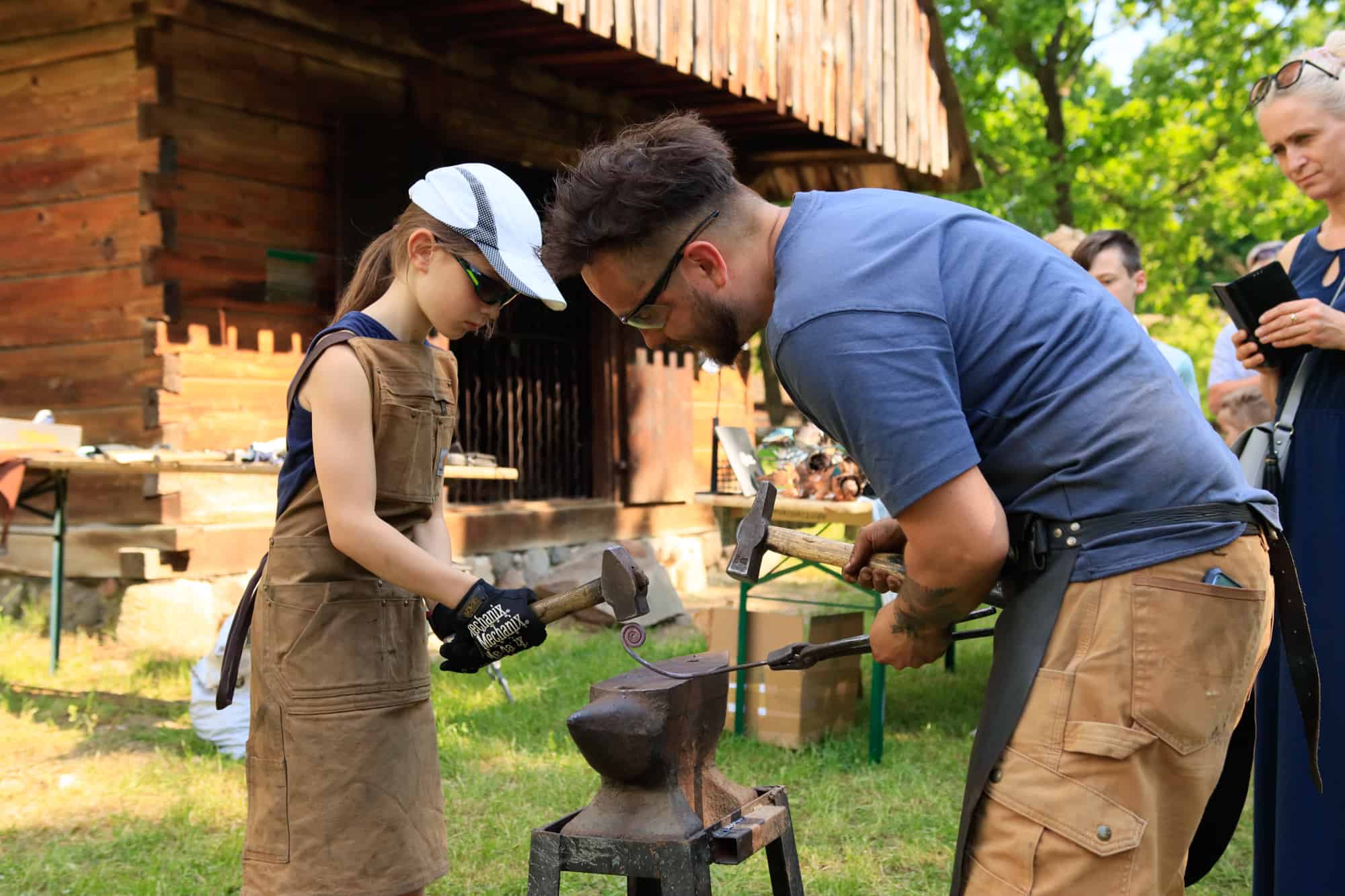CULTURE FOR CHILDREN
See dinosaurs and the nature of Poland from the sea to the Tatra mountains
The youngest visitors will be enchanted with dinosaurs: fighting syntarsus, gentle dryosaurus and flying pterodactylus. Thanks to realistic dioramas, the museum is an excellent place to get to know the most interesting natural environments of the Radom land. Here, you will meet natural inhabitants of valleys of the Pilica and Radomka rivers, as well as the Iłżycka, Stromiecka and Kozenicka forests: white-tailed eagle, lesser spotted eagle, beaver or otter.
Polish National Parks
The 14th-century defensive walls of the town are the background of dioramas presenting the natural environment of the most interesting Polish national parks. This is an excellent way to get to know differences in the nature of particular parks at one place. Dioramas present bisons, primeval forests, wolves, chamois, mouflons, sea cost, and overflow area of the Biebrza river.
Club of young discoverers of art
The Jacek Malczewski Museum invites children to workshops:
- A pot, please – archaeological workshops. Participants familiarise themselves with manual pottery techniques.
- Hay animals – environment-friendly toys made of hay.
- Wooden animals – participants decorate wooden tags by the use of various materials.
- Following the Wawel dragon – participants prepare fossils (fossilised mark of a dinosaur) as a “finder’s medal”.
- African masks. By use of various materials, participants prepare masks based on their own ideas.
- Emblem of Radom – preparation of a cast of our town.
- With fabric around the world – stamping patterns on fabrics.
- Eco bird feeders – workshops connected with a lecture on feeding birds.
- Fabric dolls – preparing good wish dolls made of fabrics.
- Pictures painted with music – musical workshops. Participants enter the world of music and learn paintings of Polish artists which refer to the music. During the classes, various instruments, sounds, musical riddles are presented. Participants also play together.
- Music of fauns (instruments on the paintings of Jacek Malczewski) – musical workshops.
- Self-portrait – Be like Jacek Malczewski. From the cycle “Art for the Youngest” – arts workshops.
- Realism versus abstraction. From the cycle “Art for the Youngest” – arts workshops.
- History of Polish coins – lecture connected with workshops where participants make chocolate coins.
- Cleanness versus Dirt – soap production workshops where participants make useful and decorative aroma soaps on their own.
- Honey Vault – workshops connected with a lecture on secrets of bees, where participants prepare and decorate hexagonal boxes (parts of a honeycomb) by use of decoupage.
- Eggs and nests – participants decorate polystyrene eggs against a background of a bird nest by use of paints and other materials. They try to imitate natural patterns of eggs of wild species of birds, which let them mask in the environment. Workshops connected with a lecture.
- Beginning embalmer – preparation of clay ushabti figures. Lecture connected with workshops.
- Painted on the glass – own folklore paintings on glass plates.
Each lesson is from 45 to 60 minutes long, the group must not exceed 30 participants. The price of a lesson: PLN 9 per person.
Address:
Rynek 11
Tel. 48 362 56 94
The Radom History Museum is a permanent exhibition of the Jacek Malczewski Museum. One of the most modern exhibitions in the country (combining the traditional form of a museum with multimedia) is located on three floors of Radom tenement houses. The museum presents the history of Radom from the 9th century to 1945. Rich collections and modern technologies such as VR glasses or three-dimensional animations allow visitors to travel in time. Visitors can see almost “live” the changes that have taken place in the city over the centuries.
It is a place where young explorers of history can delve into the fascinating past of the city. The museum offers interactive lessons and workshops that take children into the world of bygone eras. The educational program includes lessons on the location of the city under German law, the Jagiellonian era and the events of the uprisings and World War II. In addition, children have the opportunity to explore the everyday life of the inhabitants of former Radom and learn about the crafts and trade of past eras.
Address:
Rynek 4/5
Tel. 48 362 25 50
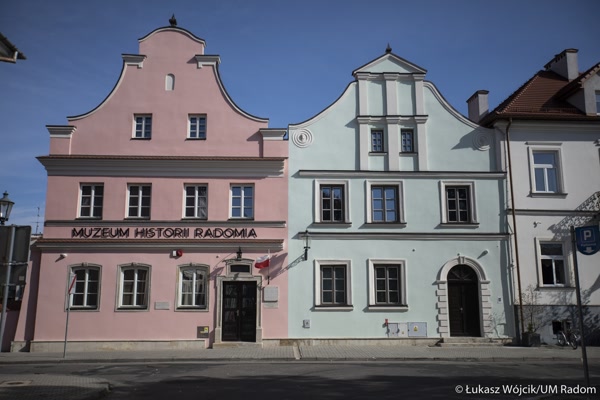
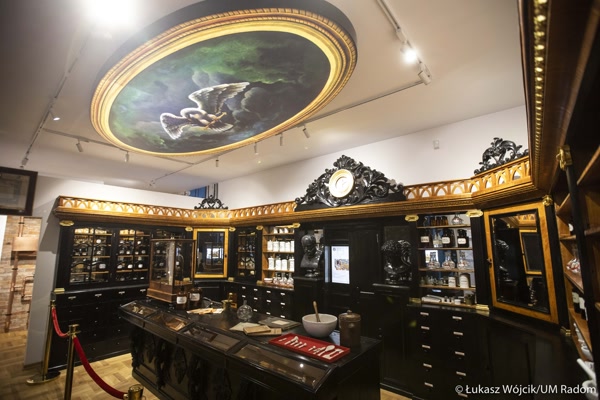
An ideal place for a family walk in the environment of the nature and wooden historic structures. The museum presents over 80 old rural structures and over 17,000 mobile exhibits. The youngest visitors will see how people lived in wooden cottages, what blacksmith’s shops and granaries were used for, and what animals were kept in pigsties and henhouses. The children will also enjoy five windmills. Lovers of natural sweets can visit an outdoor apiarian museum with over 200 beehives.
Quest for riddle hunters
In the area of the Radom Village Museum, in the homestead from Chomentowo, visitors can take part in a quest which shows the life in the rural house. You can get the quest in the ticket office or on https://questy.com.pl/quest/o-zyciu-w-wiejskiej-zagrodzie.
Family workshops:
- From a grain to a loaf – a lecture and yeast rolls baking.
- From a plant to fabric – the purpose of the lesson is to demonstrate flax processing with the use of traditional tools, as well as to enable participants to weave a fabric by use of weaving frames.
- Toys made of rags – during the lesson, children will make a doll of rags, which they will be able to take home.
- Ceramics – during the workshops, participants will observe clay processing and vessel production process. Anyone will be able to make something from clay under the supervision of a trainer.
- From the grand grandmother’s trunk – clothes and fabric of the Radom region – the participants will be able to see and touch fabrics and try elements of clothes on. During the lessons, the participants will obtain teaching materials: an exercise book about weaving and folklore dress, paper folklore dress models
- Calligraphy lesson – the purpose of the lesson is to improve writing techniques. It is preceded with a story about the beginning of writing and a presentation how old writing tools were used. During the lesson children obtain an exercise book where they will practise beautiful writing with a nib and ink.
- Easter painted eggs – Having seen the exhibition, each child will receive a blown egg, a wax writing tool to decorate their egg with wax. The lesson is available from 16 April to 09 April.
- Lent and Easter – during the art classes the participants will make a traditional Radom palm.
- St Catherine and St Andrew – the purpose of the lesson is to present the saints – a story of their life, traditional Andrew fortune-telling, wax melting through a key and reading wax figures, letting candles on water, drawing objects hidden under bowls, putting shoes on the floor, etc. Available from 31 October to 30 November.
- St Nicolaus Legend – the purpose of the lesson is to present St Nicolaus, legendary bishop of Mira in Lesser Asia, who was said to live at the beginning of the 4th century. During the lesson children will listen to legends and folk tales. During the lesson, children will also prepare a drawing “St Nicolaus . . . ”. All participants will obtain a sweet surprise. Available from 1 December to 31 December.
- Christmas Eve and Christmas Days – The purpose of the lesson is to make children familiar with traditions of the Christmas Eve and Christmas Days, explain symbolic character of Christmas Eve dishes and interior decorations. During the lesson children prepare decorations of altar bread (it is cut into circles, then several of circles are cut into halves, several in quarters and then they are stuck with saliva to form a ball form, which is a symbol of the earth). Younger children prepare Christmas tree decorations of paper, blotting paper, peas, nuts, etc. Available from 15 November to 23 December.
- Certificate of grand grandfather’s skills – workshops during which children see a presentation of and try to perform the following activities: grinding grains, forming yeast rolls, whipping butter in the churn, washing in the washtub on a washboard, flax processing, twisting a cord, weaving on frames. Available from 15 April to 31 August.
Lessons are from 45 to 90 minute long, depending on the subject (we agree on details when the lessons are ordered).
Price per person:
children up to 7: PLN 10
others: PLN 14
Fairytale Sundays
These are adventurous meetings with theatre, music and cinema. Every second Sunday at 11.00 a.m., Resursa Obywatelska invites whole families to have fun together. Colourful and fascinating performances by theatres from all over Polish are always educational – they entertain and teach. Concerts designed for toddlers guarantee smiles on their faces. A carefully selected film repertoire, in turn, abounds in popular, family productions. Each Sunday meeting ends with animations or thematic workshops conducted by actors performing on stage or the Resursa Obywatelska team.
Sundays on the Market Square
In the summer, the best fun moves to the Radom Market Square. Long Sunday holiday afternoons are full of attractions for the whole family. These are interdisciplinary meetings that combine educational, artistic and historical elements related to the heritage of our city and region. When planning a summer holiday, it is worth including in the schedule the attractions prepared by Resursa Obywatelska.
Thematic workshops
Throughout the year, Resursa Obywatelska invites you to a variety of thematic activities. Organized groups can take advantage of educational workshops, the program of which is adapted to the age and number of participants. The proposals include, m.in, family tree creation workshops, film classes and museum lessons. Resursa also conducts occasional workshops on the occasion of typical and unusual holidays. In addition, it offers, m.in, classes:
– music and dance,
–Theatre
–Literary
–Movement.
Detailed information, including registration for classes and workshops, can be found on the website of Resursa Obywatelska.
Visit the Museum
The youngest can also take advantage of the offer of the Museum of Contemporary History of Radom in the Deskur Tenement House, where the permanent exhibition “Industry – the power of the city. Radom in the years 1918-1989”. It is distinguished by its interactive character. Watching it with their parents, children can not only imagine the life of their grandmothers or grandfathers in the communist period, but also tangibly check what the reality in which they lived looked like. Some exhibits can be touched and even checked how they work. You can play hopscotch in the courtyard of Radom, look under the hood of a polonaise, pick up the receiver of the iconic telephone and hear a voice from the past, stand in line at the store or type something. In addition, the Museum organizes thematic temporary exhibitions and activities for organized groups.
Address:
ul. Malczewskiego 16
tel. 48 362 85 90
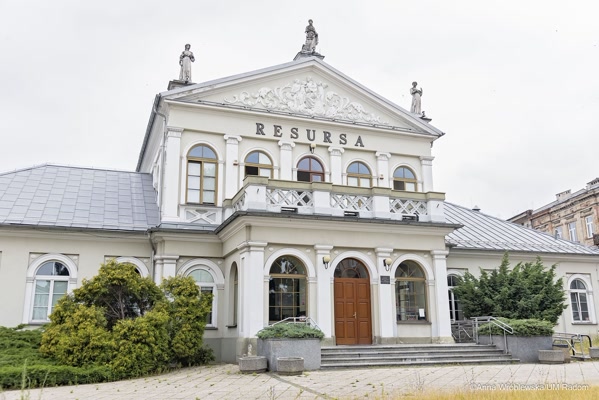
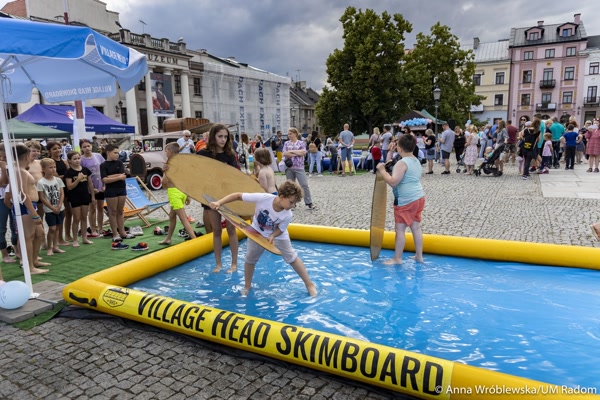
The building was built on the foundations of the former House According to the Gate, which is part of the Radom castle. There were, among m.in, royal kitchens and utility facilities. After a thorough revitalization, an exhibition was prepared in the Tenement House presenting objects found during several years of archaeological research. The exhibition features artefacts from the period from the fourteenth century to the eighteenth century, including decorative architectural details or fragments of pottery and stove tiles. The entire exhibition is complemented by a film projection showing a hypothetical reconstruction of the castle complex and boards presenting its history and subsequent stages of the castle’s research. The exhibition is organized by Rewitalizacja Sp. z o.o.
Free admission
Opening hours: Mon.-Fri. 8.00-15.00, other dates by individual arrangement.
ul. Grodzka 8
+48 48 383 08 55
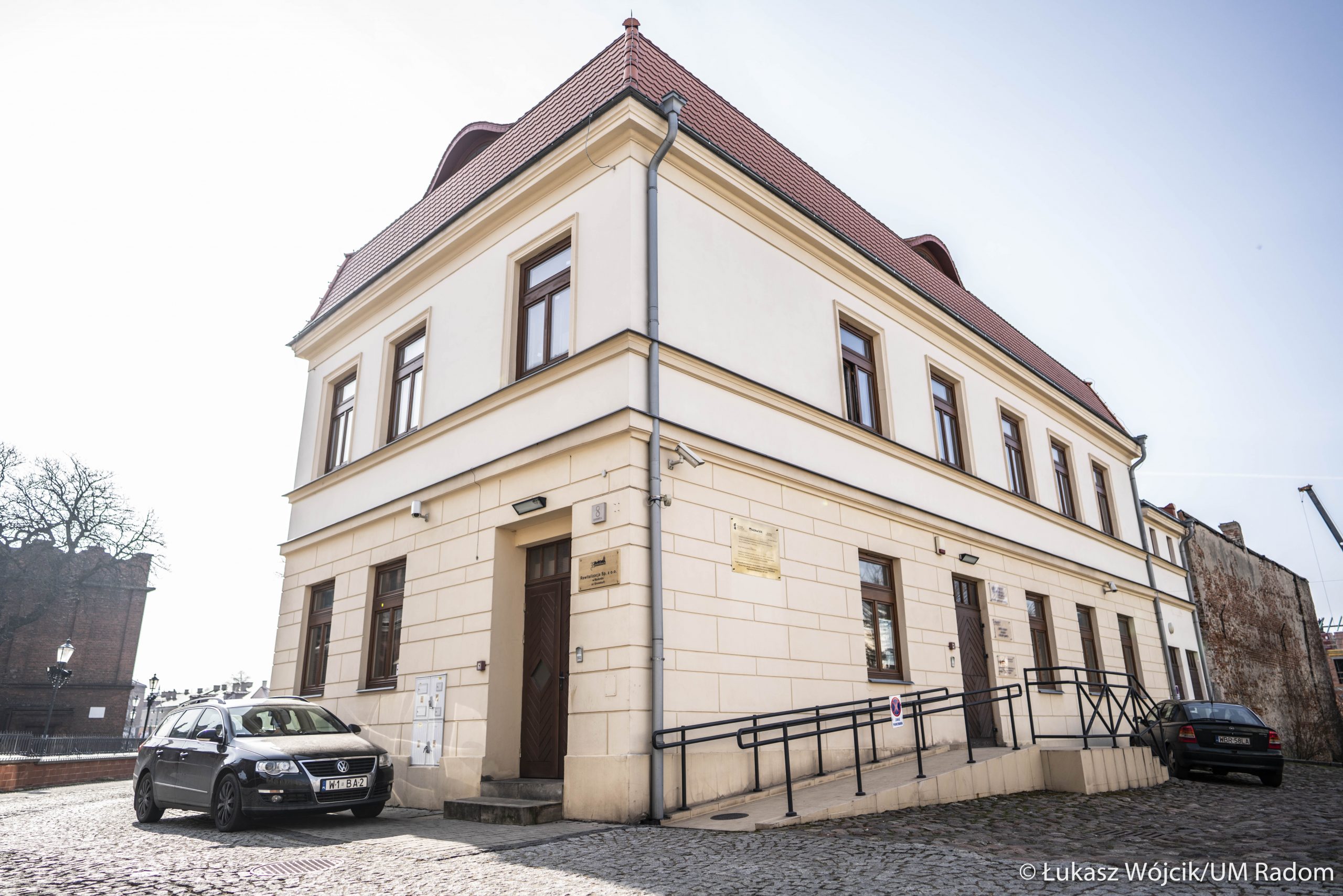
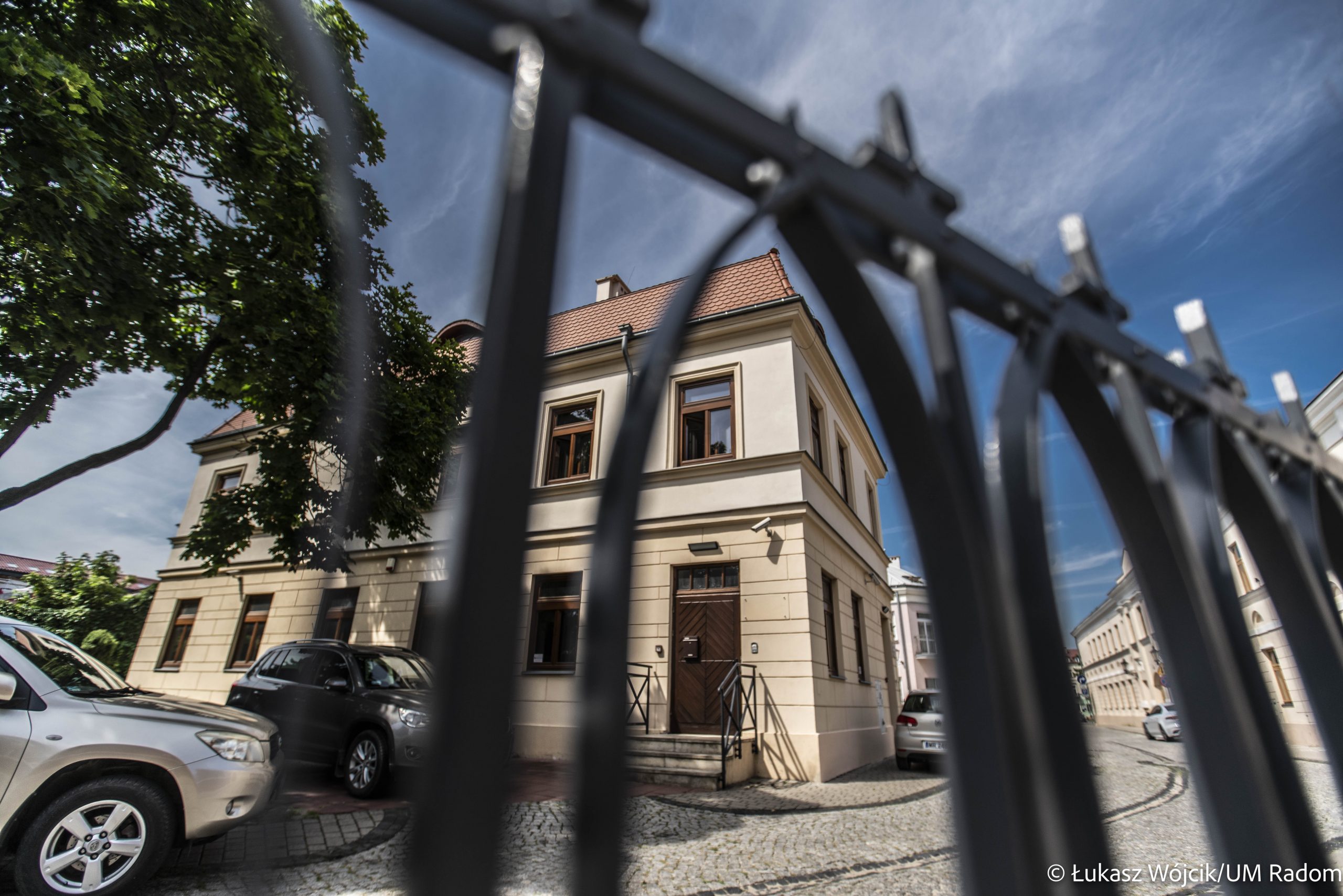
The Museum of Contemporary History of Radom invites you to a fascinating journey through the history of Radom in the years 1945-1989, a period particularly rich in events and social changes. The permanent exhibition takes visitors into the realities of everyday life during the People’s Polish, allowing them to experience the atmosphere of those times firsthand. Walking through the museum, you can feel the atmosphere of the Radom backyard of the 60s, hear conversations of people standing in long queues or buy something from under the counter in a communist store. The exhibition not only tells a story, but also engages viewers through an interactive approach that brings the past closer to the past in an accessible and inspiring way.
The museum also offers a rich educational program, including workshops, museum lessons and publications that allow you to explore the history of Radom in a more interactive way. We especially encourage primary and secondary school students to participate in educational programs, such as historical workshops or “History in a nutshell” classes, where key events and figures from the history of Radom are presented.
Address:
The Museum of Contemporary History of Radom is located in the renovated Deskur tenement house, at the intersection of Rwańska Street and the Market Square.
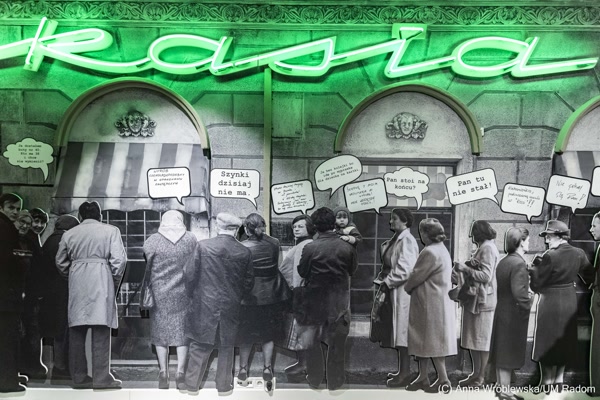
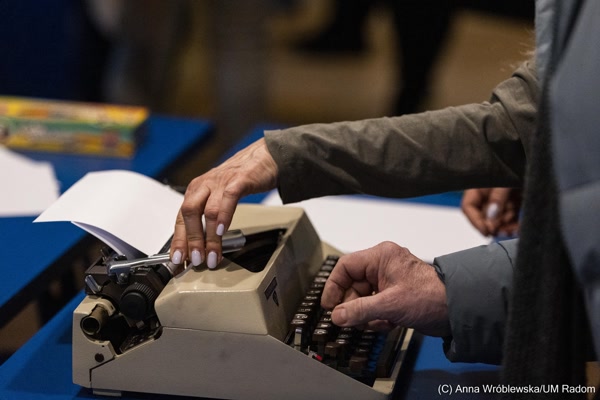
The aim of cultural education is to shape conscious and active citizens. Various activities addressed to residents serve development, prepare for conscious participation in culture, awaken aesthetic sensitivity and inspire cultural and civic activity.
The amphitheater offers many classes and workshops in the field of traditional and modern arts.
Since 2019, the New Media Studio has also been operating – a unique educational space where participants have access to professionally equipped workshops: newsroom, television, sound, radio, photography and animation. This is where art meets technology, offering a full cross-section of modern activities that enable residents to develop their skills in a dynamic and inspiring environment.
Educational initiatives deepen knowledge about cultural heritage, teach a critical approach to the phenomena of contemporary culture, shape sensitivity to multiculturalism and support social involvement in the process of dissemination of culture. Our city strives to be a place where culture and cultural education create space for development, cooperation and creativity, bringing joy and satisfaction to all residents.

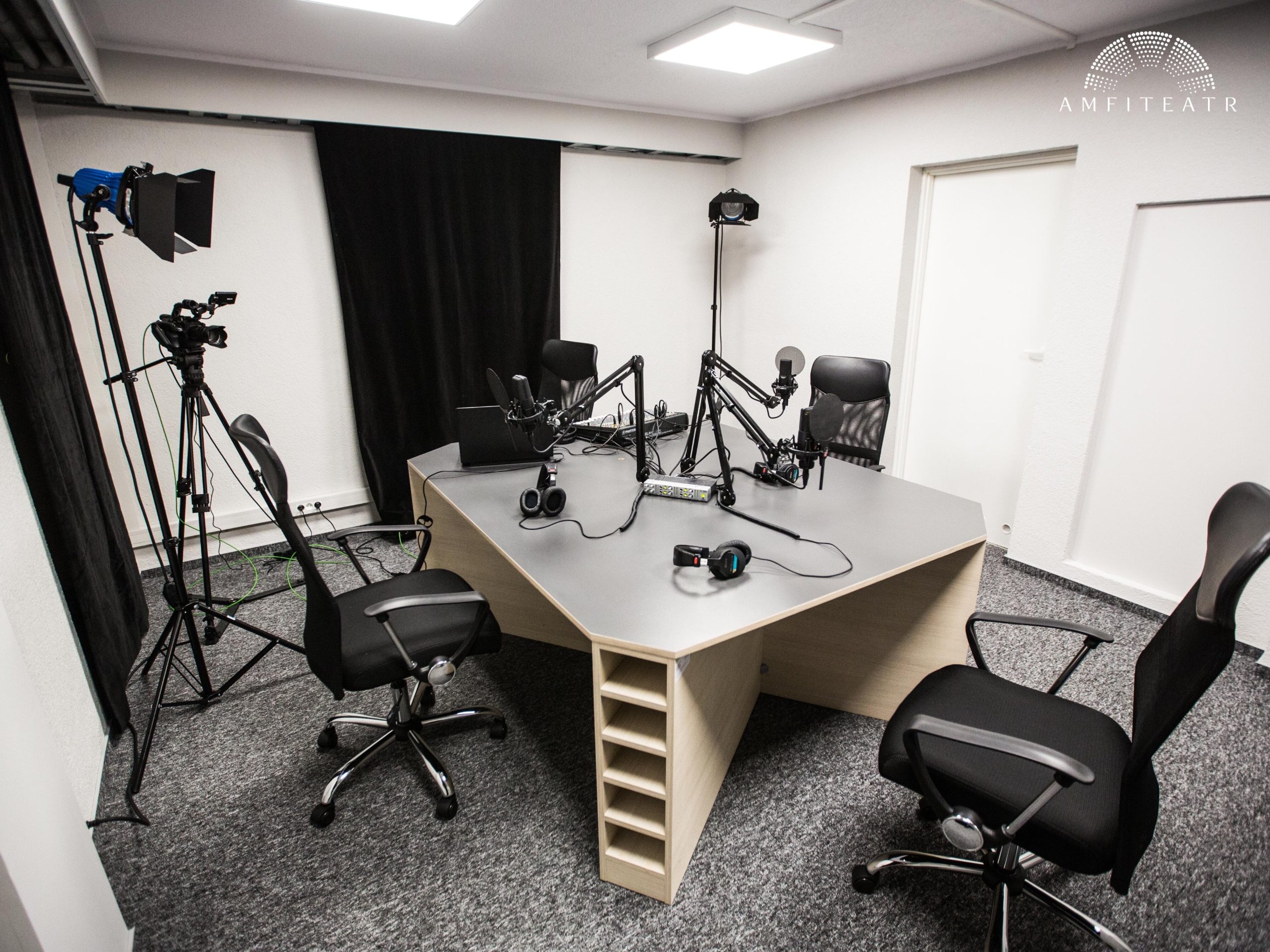

Workshop
Workshops for preschool groups are a magical journey through the world of shapes and colors. The casual formula of the classes and simple art classes create a solid foundation for the growing interest in art. The classes consist of two stages. The first is a walk, during which children discover the interiors of institutions filled with works of art. All under the watchful eye of a guide. Then the works become an inspiration for conversations and artistic activities. During the classes, there is no shortage of movement, which supports the concentration of the participants, allowing them to maintain a proportion between education and fun.
Primary schools are divided into three age groups: grades 1–3, grades 4–6 and grades 7–8. The workshop program is adapted to the cognitive abilities and requirements of a given group. During the workshops at the Power Plant, important issues are discussed, such as: emotions, history, science and cultural customs. The art tasks that accompany the works learned at the institution develop imagination and manual skills. Workshops at the Power Plant are a great start in the adventure with contemporary culture.
Educational game (offer for grades 4–8)
A space journey full of challenges and competition. Discovering art has never been so exciting. A board game during which participants perform tasks prepared on the basis of works from the Power Plant’s collection. Through play, participants have the opportunity to learn important concepts and names related to art. During the game, participants move around the board with their own pawns.
Lectures
Contemporary art is a huge phenomenon within contemporary culture. During meetings in the form of lectures, the lecturer tries to explain the characteristics and specifics of the elements that make it up. Lectures are an opportunity to expand and consolidate the knowledge that appears in the teaching content in secondary schools. Classes at the Power Plant are an excellent opportunity to talk about abstraction, critical art, post-war art and many issues related to the contemporary humanities.
